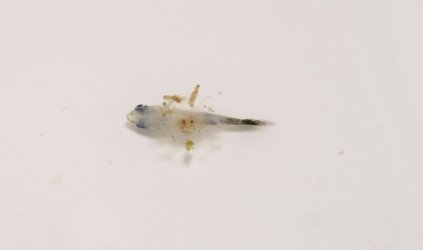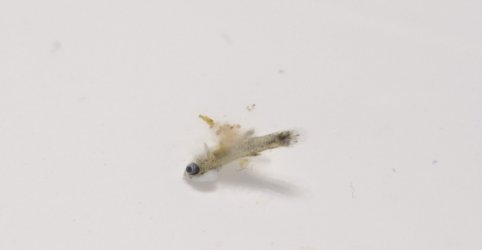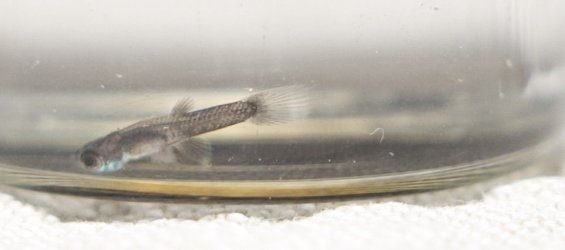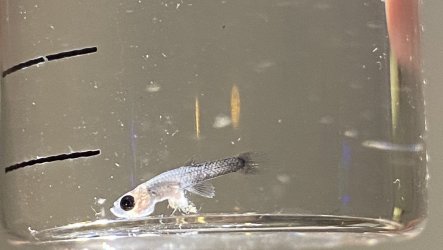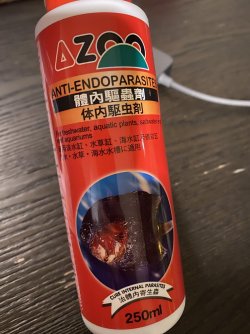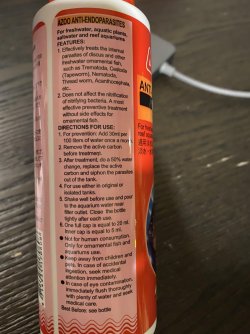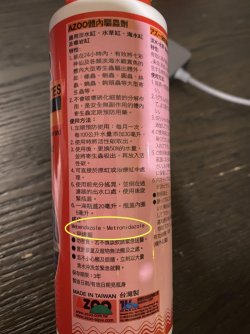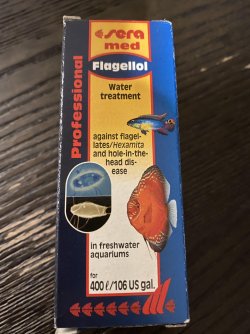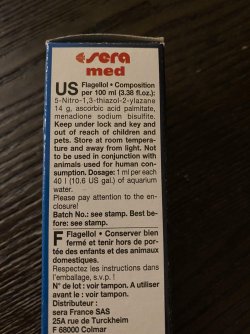Hi all,
Lately I've been having some major issues with fish appearing to starve to death. Most recently 2 Honey Gourami, and 3 female guppies along with a number of guppy fry.
I've spent some time looking at water quality - which appears perfect every time it is tested (including right after a death occurs).
I've increased water surface agitation and circulation to ensure good oxygenation, wondering if that was a contributing factor - the remaining fish appear more active as a result of this. But the deaths continue.
I've attached some photographs, I've had a fry die today, and one that looks close. The general pattern seems to be:
I'm suspecting some type of parasite, but don't have much of an idea where to start. Any help would be greatly appreciated.
I've attached four images. 2 angles of a guppy fry roughly 3 weeks old, that has recently (hours) died after "appearing to be giving birth". 2 angles of a live guppy fry, same age, exhibiting similar behaviors and likely to die soon
Current water parameters:
NH4/NH3: 0ppm
NO2: 0ppm
NO3: 5ppm
GH: 8 dGH
KH: 6 dKH
pH: 7.2
Temp: 26 C
PO4: 0ppm (stopped fertz and CO2 for a week)
Tank is medium planted ~50 gal (200L). Pressurised CO2 injected to ~15-20ppm.
Weekly 30% water change.
Livestock:
- 15 cherry barb
- >15 guppy fry
- 3 adult guppies
- 1 honey gourami
- 7 amano shrimp
Also a quarantine tank with:
- Pleco L128 - Blue Phantom
- Pleco L471 - White spotted dwarf hypancistrus
Thanks!
Lately I've been having some major issues with fish appearing to starve to death. Most recently 2 Honey Gourami, and 3 female guppies along with a number of guppy fry.
I've spent some time looking at water quality - which appears perfect every time it is tested (including right after a death occurs).
I've increased water surface agitation and circulation to ensure good oxygenation, wondering if that was a contributing factor - the remaining fish appear more active as a result of this. But the deaths continue.
I've attached some photographs, I've had a fry die today, and one that looks close. The general pattern seems to be:
- The fish are eating, but loosing weight
- They become less interested in food
- They continue loosing weight, until their head is the largest girth (viewed from above), with a tiny thin body
- (With guppies) their tail fin appears to get quite thin (clamped?)
- (With guppied) their body appears to turn a darker, almost black, colour.
- They float around relatively listless for up to 24 hours. I've also quarantined them off, and tried feeding individually with no luck here.
- (With multiple guppies) I observed what I first thought was "fry" appearing from their anus region - but now realise it is not.
- Very soon after, they die.
I'm suspecting some type of parasite, but don't have much of an idea where to start. Any help would be greatly appreciated.
I've attached four images. 2 angles of a guppy fry roughly 3 weeks old, that has recently (hours) died after "appearing to be giving birth". 2 angles of a live guppy fry, same age, exhibiting similar behaviors and likely to die soon
Current water parameters:
NH4/NH3: 0ppm
NO2: 0ppm
NO3: 5ppm
GH: 8 dGH
KH: 6 dKH
pH: 7.2
Temp: 26 C
PO4: 0ppm (stopped fertz and CO2 for a week)
Tank is medium planted ~50 gal (200L). Pressurised CO2 injected to ~15-20ppm.
Weekly 30% water change.
Livestock:
- 15 cherry barb
- >15 guppy fry
- 3 adult guppies
- 1 honey gourami
- 7 amano shrimp
Also a quarantine tank with:
- Pleco L128 - Blue Phantom
- Pleco L471 - White spotted dwarf hypancistrus
Thanks!
Attachments
Last edited:


